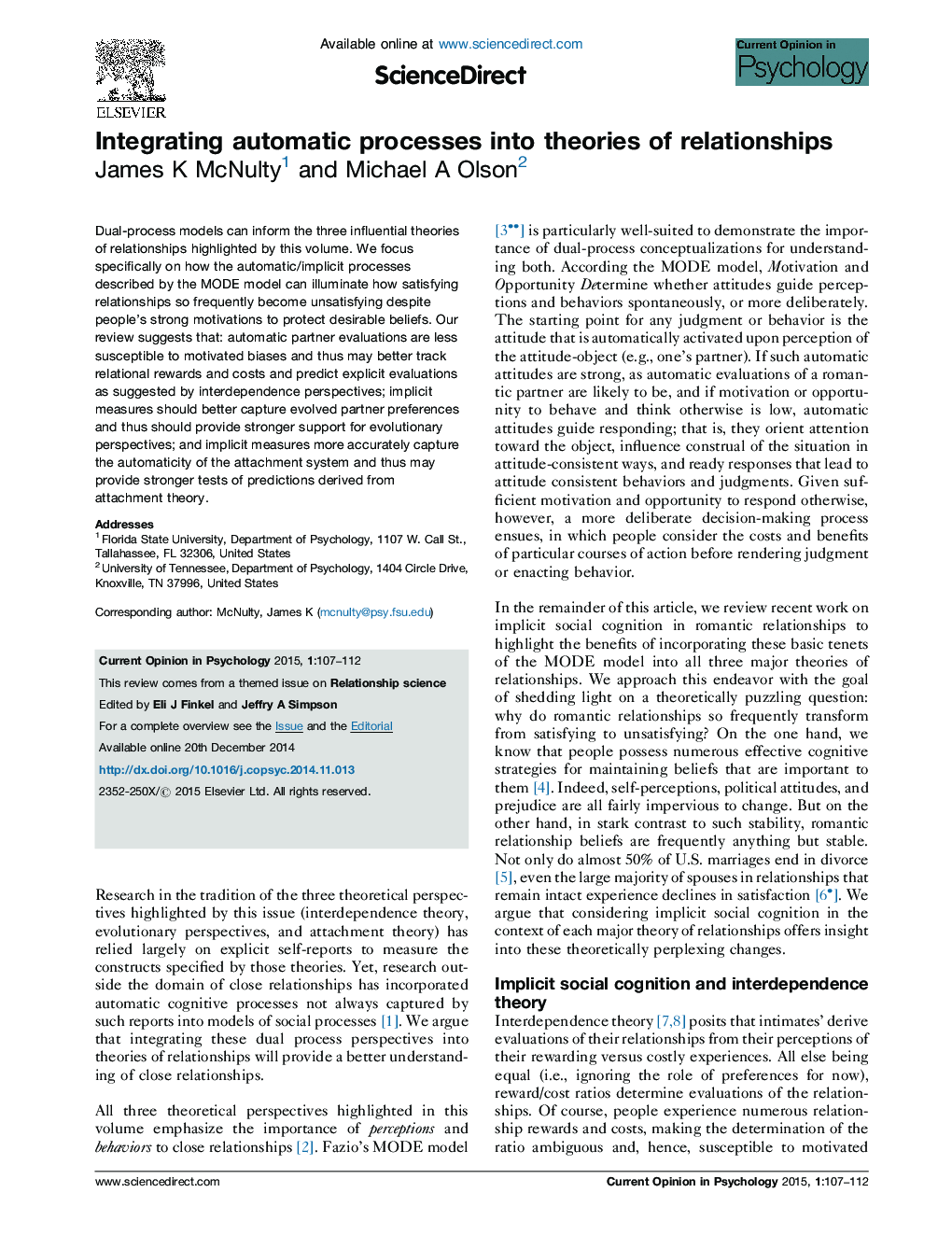| Article ID | Journal | Published Year | Pages | File Type |
|---|---|---|---|---|
| 879414 | Current Opinion in Psychology | 2015 | 6 Pages |
•Integrates the dual-process tenets of the MODE model into theories of relationships.•Argues automatic evaluations uniquely track and predict interpersonal processes.•Reviews research on automatic partner evaluations and relationship development.
Dual-process models can inform the three influential theories of relationships highlighted by this volume. We focus specifically on how the automatic/implicit processes described by the MODE model can illuminate how satisfying relationships so frequently become unsatisfying despite people's strong motivations to protect desirable beliefs. Our review suggests that: automatic partner evaluations are less susceptible to motivated biases and thus may better track relational rewards and costs and predict explicit evaluations as suggested by interdependence perspectives; implicit measures should better capture evolved partner preferences and thus should provide stronger support for evolutionary perspectives; and implicit measures more accurately capture the automaticity of the attachment system and thus may provide stronger tests of predictions derived from attachment theory.
